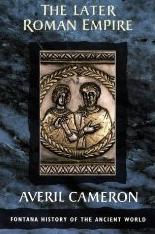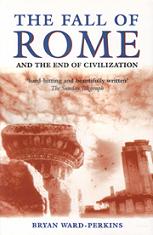
The Later Roman Empire
Averil Cameron
238 pages including index
published in 1993
As you may have noticed if you’re a regular reader of my booklog, is that I’ve developed a mild obsession with Late Antiquity and the Roman Empire, fueled by the two excellent books I got out of the library last year, Peter Heather’s The Fall of the Roman Empire and Bryan Ward-Perkins’ The Fall of Rome. Before that I’d only read about Rome in a few history lessons at school, a couple of popular history books for kids and a shedload of Asterix comics, all of which emphasised the early days of Rome, up until Caesar and Augustus, with perhaps a bit of Nero thrown in. Everything after the first century CE was largely ignored or at best only mentioned briefly; the later centuries of the Roman Empire are seen as an afterthought, a long slide into barbarism ala Edward Gibbon.
Yet if you start reading more academic treatments of Roman history, you soon discover that this view has long been abandonded, ever since the publication of Peter Brown’s The World of Late antiquity in 1971. That was the first popular book to do away with the idea of the dark ages,
re-emphasising the continuity between the Christianised empire of the third century CE and the Early Middle Ages, as well as the continuing survival of the Eastern Empire centered around Byzantium, as opposed to the Western Empire’s breakup. Averil Cameron’s The Later Roman Empire is one product of this re-emphasis. Published in 1993 as a volume in the Fontana History of the Ancient World, it shows that the view put forth by Peter Brown has won mainstream acceptance. It is meant as a standard textbook on the late Roman Empire, because none such was yet written in English, as the preface explains.

